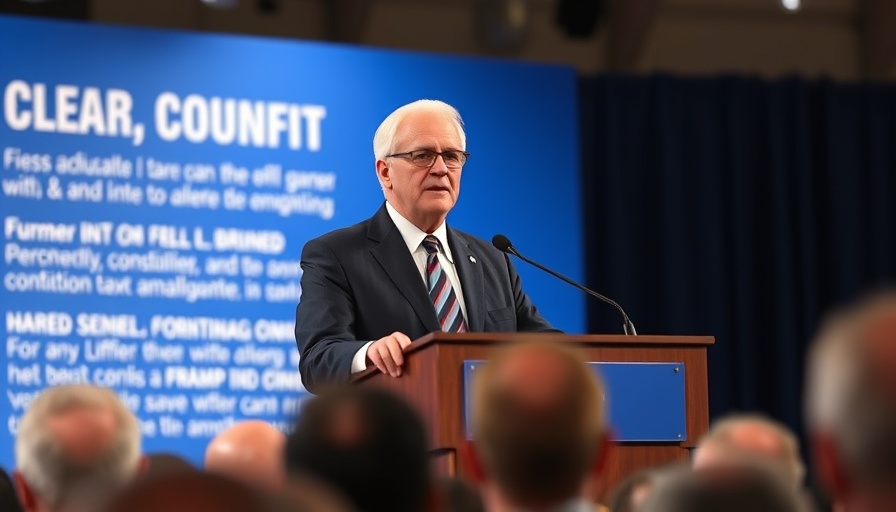
Leadership at a Crossroads: Learning from Leaders
The recent conversation with Paul Polman, former CEO of Unilever and author of Net Positive, highlighted an urgent need for courageous leadership. Addressing the environmental crisis, economic fluctuations, and societal inequalities, Polman’s insights resonate strongly among boutique hospitality professionals striving to make meaningful changes. He encourages leaders to adapt, bridge gaps, and cooperate for solutions. In this narrative, he underlines the profound necessity for a new brand of leadership that becomes a beacon during turbulent times.
Lessons from a Moral Compass: The Impact of Pope Francis
In his discussion, Polman referred to Pope Francis as a moral guide, emphasizing the importance of human dignity amidst crises. For hospitality entrepreneurs, the Pope's advocacy reminds us that a thriving hospitality industry should prioritize the well-being of customers and the planet equally. By embodying this balance in their operations, boutique hospitality professionals can ensure their businesses not only provide comfort but also contribute positively to the community and environment.
The ABCs of Transformational Leadership in Hospitality
Polman’s framework—the ABCs of leadership—is particularly relevant for those in the hospitality industry. To adapt, leaders should actively listen to feedback from guests and staff alike, acknowledging diverse perspectives. Bridging the divides means fostering an inclusive atmosphere, something that boutique hotels can excel at by highlighting local culture in their experiences. Finally, cooperation among peer businesses and local communities can bring about innovative solutions, such as urban farming initiatives or collective strategies to reduce dependence on fossil fuels.
Courageous Sustainability: Leading by Example
As Polman highlights the ongoing green transformation—with $2.1 trillion spent on environmental initiatives—hospitality entrepreneurs can reflect on their sustainability goals. Small-scale innovators in hospitality, like eco-lodge operators and Airbnb hosts, can implement solar-powered systems or switch to eco-friendly amenities, such as biodegradable paper wrappers. Leading with clear sustainability practices not only attracts conscious customers but also cultivates a culture of responsibility.
Investing in a Sustainable Future: Opportunities Await
The green economy is projected to swell significantly, expected to grow from $5 trillion to $14 trillion by 2030. For boutique hospitality professionals, this presents an invaluable opportunity to align their ventures with this global transformation. By becoming pioneers of sustainability within the tourism sector—like implementing off-grid solar technologies or engaging in local partnerships for wildfire detection—hospitality owners can significantly contribute to a more sustainable future.
Final Thoughts: The Path Forward for Boutique Hospitality
While we stand at a pivotal juncture in leadership and sustainability, Paul Polman’s words offer hope and direction. For those operating in boutique hospitality, the path to integrating courageous leadership is clear. Embrace adaptations, bridge community gaps, and cooperate towards common sustainability goals. By doing so, the industry can thrive, paving the way for lasting positive change while enriching the experiences that guests cherish.
If you’re ready to join the movement toward sustainable hospitality, consider implementing eco-friendly practices into your business model. The choices we make today can have a profound impact on tomorrow’s world.
 Add Row
Add Row  Add
Add 




Write A Comment